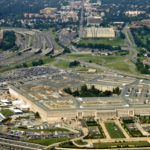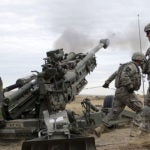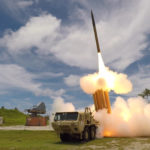Chilton: Cyber Hackers, Foes, Penetrate Military Computer Systems; New Nuclear Weapons Needed To Thwart Terror Thieves U.S. ballistic missile defense (BMD) programs deter threats and therefore should be continued, since successful tests last year increase confidence that missile defense works in the real world, a key military officer told Congress. While rumors swirl that a Democratic President Obama and Democrats with a larger majority in the new Congress will slash missile defense programs deeply, Air Force Gen. Kevin Chilton, commander…
Contract Updates
R&M Government Services (Las Cruces, New Mexico) – $23,894,784
R&M Government Services,* Las Cruces, New Mexico, has been awarded a maximum $23,894,784 firm-fixed-price, indefinite-quantity contract for battery compartments. This was a sole-source acquisition using justification 10 U.S. Code 3204 (a)(1), as stated in the Federal Acquisition Regulation 6.302-1. This…
L3Harris Technologies Inc. (Clifton, New Jersey) – $9,571,947
L3Harris Technologies Inc., Clifton, New Jersey, is being awarded $9,571,947 for a firm-fixed-price contract for the procurement of 74 radio frequency amplifiers in support of Navy F/A-18E/F/G aircraft. The contract does not include an option provision. All work will be…
Sikorsky Aircraft Corp. a Lockheed Martin Co. (Stratford, Connecticut) – $21,600,000
Sikorsky Aircraft Corp., a Lockheed Martin Co., Stratford, Connecticut, is awarded a not-to-exceed $21,600,000 cost reimbursable undefinitized order (N0001926F1016) against a previously issued basic ordering agreement (N0001923G0002). This order provides for instantaneous access to 105% Transient Engine Torque test and…
Amentum Mitie Pacific LLC (Chantilly, Virginia) – $85,236,794
Amentum Mitie Pacific LLC, Chantilly, Virginia, is awarded an $85,236,794 fixed-price-award-fee, indefinite-delivery/indefinite-quantity contract for base operating support services at Navy Support Facility, Diego Garcia. Work will be performed at Diego Garcia, British Indian Ocean Territory, and is expected to be…













